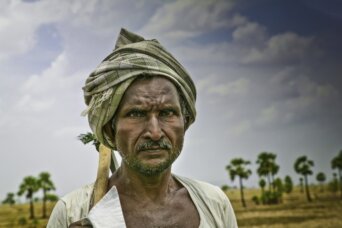- About
- Topics
- Picks
- Audio
- Story
- In-Depth
- Opinion
- News
- Donate
- Signup for our newsletterOur Editors' Best Picks.Send
Read, Debate: Engage.
| topic: | Human Rights |
|---|---|
| located: | India, United Kingdom |
| editor: | Gurmeet Singh |
Delhi has responded violently to the protests in India, something people around the world have been speaking about. But apparently, British Prime Minister Boris Johnson had no idea what’s been going on. When MP Tan Dhesi raised the question of violence against the protestors in the House of Commons, Johnson said: “Our view is that of course we have serious concerns about what is happening between India and Pakistan but these are pre-eminently matters for those two governments to settle.”
This is not only wrong and embarrassing, but it’s also typical for Johnson who is also currently making a mess of Brexit. The eyes of the world should be on India right now; so don’t be a 'Boris' and make a virtue of ignorance. What’s happening in India is one of the largest and most important civil protest actions of the last few decades. Global News Canada gives a handy summary of what’s been going on and why:
“Farmers in India have been rallying in recent months against three laws enacted Sept. 20 by Prime Minister Narendra Modi’s government…
The first, the Farmers’ Produce Trade and Commerce (Promotion and Facilitation) Bill, will allow farmers to deal directly with corporations and private buyers, as opposed to doing business through the Indian government…Up until now, India has provided farmers with Minimum Support Pricing (MSP), a fixed price that insures farmers of 23 crops against any substantial falls in farm prices…
The second law, the Farmers (Empowerment and Protection) Agreement of Price Assurance and Farm Services Bill, deals with pricing. The bill will push farmers, corporations and private buyers to negotiate contracts with promised “price assurance,” rather than a regulated price set by the Indian government.
And the third, the Essential Commodities (Amendment) Bill, seeks the “modernization” of India’s food supply chain by reducing stockpiling, removing commodities like “cereals, pulses, oilseeds, edible oils, onion and potatoes” from the current list of essential commodities. It also aims to “drive up investment in cold storages” and give farmers the “freedom to produce, hold, move, distribute and supply” their products.”
Why does the government want to enact these laws? Ravinder Kaur explains:
“The rationale is that the pandemic offers a moment in which global investments could potentially be diverted from China to India. The contagion was not just a public health disaster but also a reminder that China, as the “factory of the world”, dominates global manufacturing and thereby critical supply chains. As the backlash against China has grown, so has the possibility of re-channelling manufacturing to other nations. As the US has spoken of the prospect of decoupling from China, a new vacancy as the world’s “next factory” seems to have opened up, a vacancy India is eager to fill.
This crisis-as-opportunity approach is accelerating the speed of market reforms that big capital has long demanded. First there was the highly publicised Make in India programme. Earlier this year, it was repackaged as the Atmanirbhar Bharat (self-reliant India): a competitive and resilient manufacturing hub in the global economy. Its most recent iteration is One Nation, One Market, which envisages India as a consolidated economic unit governed by a strong centralised state – a step that undermines India’s federal state structure. Articulated in the language of empowerment and progress, it positions the Indian nation as a single market, with economic resources and activity under the auspices of the state.
This vision requires India to be made market-ready, a site of production in which all national territory and inhabitants are available as factors of production. Seen from this vantage point, the new market reforms are the logical steps designed to upgrade India’s global ranking on the “ease of business” index. Hence the new farm laws – on pricing, sale of agricultural produce, and storage – which remove safeguards that have protected the agricultural sector from the vagaries of the free market.”
Get some knowledge of what’s going down in India right now, and support the farmers.
Image by Mohan Nannapaneni

